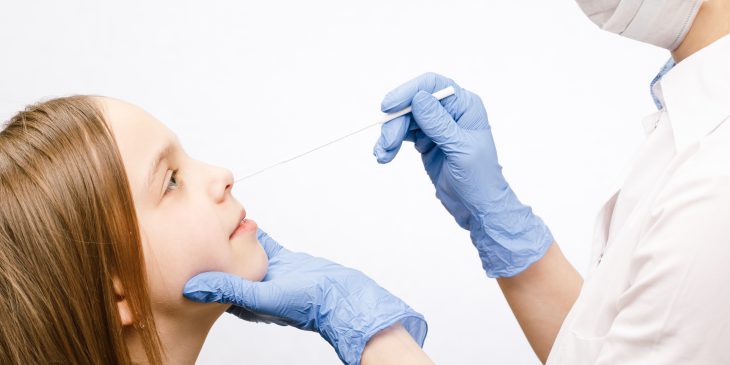
Ericka Fink, M.D., M.S.
A rare but concerning link has been discovered between COVID-19 and multisystem inflammatory syndrome in children (MIS-C), a delayed immune system overreaction that can be serious and requires medical attention. UPMC Children’s Hospital of Pittsburgh critical care physician and researcher Dr. Ericka Fink is co-leading a global consortium to further study the neurological side effects of COVID-19 in children, including the link between these two illnesses.
A Consortium for Kids
In partnership with the Global Consortium Study of Neurological Dysfunction in COVID-19, which was founded by the University of Pittsburgh’s Dr. Sherry Chou, Fink and her co-primary investigators, Dr. Courtney Robertson of Johns Hopkins Children’s Center and Dr. Michelle Schober of Primary Children’s Hospital in Salt Lake City, seek to describe the neurological effects of COVID-19 on children’s brains. So far, 90 centers in 25 countries are in the process of enrolling.
“The collaboration we’re seeing in our consortium and across the health care industry has been a positive outcome of the pandemic,” said Fink. “Clinicians, scientists and the families who participate in research are coming together at an unprecedented speed to assess how hospitals worldwide can better care for kids and families impacted by COVID-19 and MIS-C.”
The consortium seeks to classify what kinds of neurological symptoms and conditions occurred, what treatments children hospitalized with COVID-19 required, the highest level of care they needed and their outcomes at discharge. The investigators are hopeful that additional research can generate a better mechanistic understanding of the link between COVID-19 and MIS-C using biomarkers, imaging and detailed health assessments to check for ongoing symptoms or health effects after children return home.
COVID-19 and MIS-C: When to Seek Care
MIS-C can present weeks after a child contracts symptomatic or asymptomatic COVID-19. Because so many symptoms of both illnesses overlap with other types of infections, Fink urges parents to rely on their instincts when deciding to seek care for their children.
“Parents know their kids best, and they should not be afraid to take them to the hospital when necessary, where care teams remain ready and able to provide urgent treatments safely,” said Fink. “In the event of an emergency, delays in care could be costly.”
Non-urgent COVID-19 cases may look different in each child. Parents should monitor for the following symptoms, which are signs of not only COVID-19, but also other infections that may benefit from medical attention:
• Signs of respiratory distress, including fast breathing and lips changing color
• Complaints of headache with fever and a stiff neck
• Abnormal feeding patterns in infants
• A change in a child’s mental status, including confusion, abnormal agitation and being less arousable
Parents should contact their pediatrician in non-emergency situations for appropriate guidance on care and testing.
“We’re all in this together, and until there’s an effective vaccine, we need to continue taking care of one another’s health,” concluded Fink. “We need to continue doing the right things to protect each other, like washing hands, wearing a mask and practicing physical distancing.”
For answers to frequently asked questions about COVID-19, visit the UPMC Children’s Hospital of Pittsburgh website, and visit the CDC website to learn more about MIS-C.








